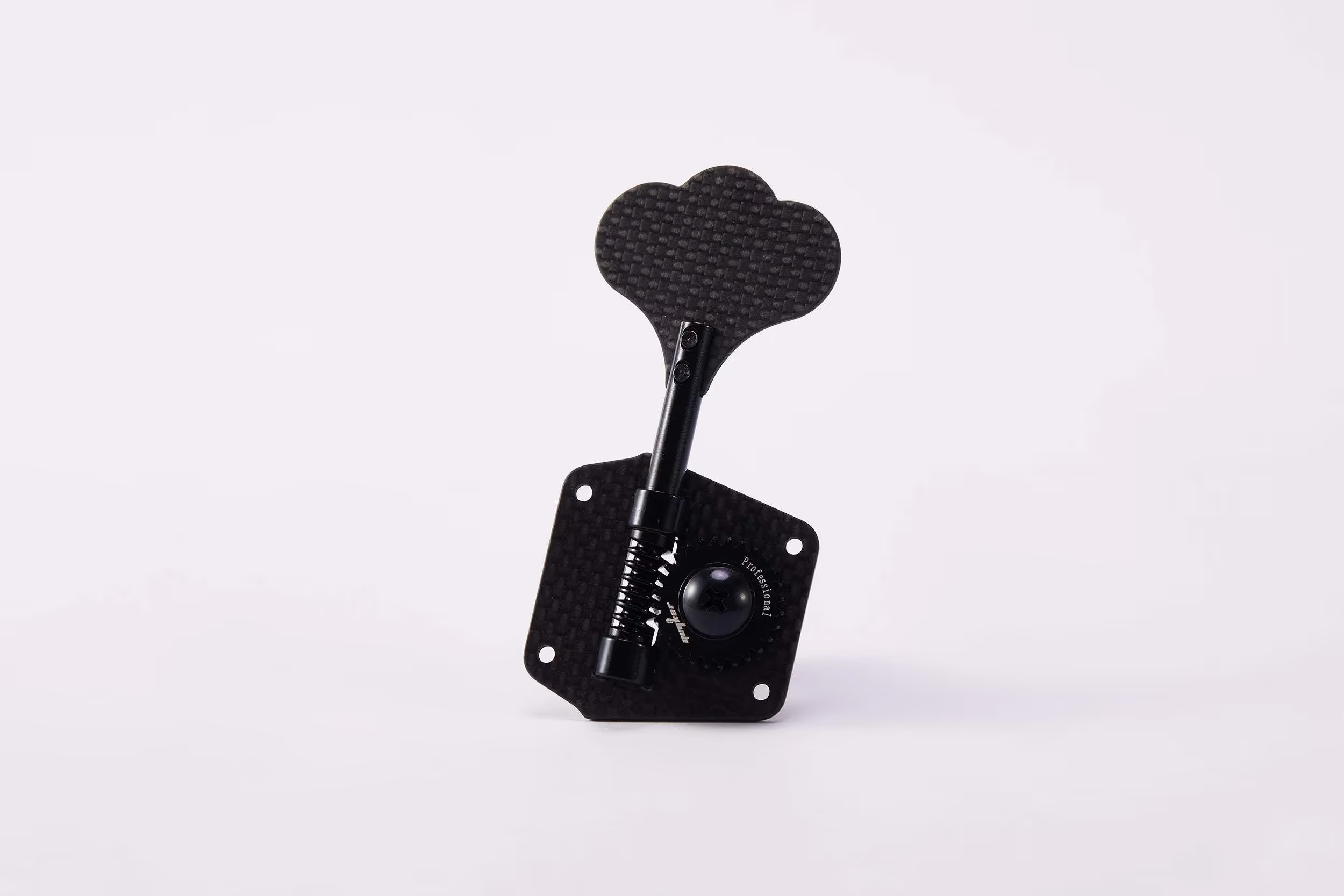
Tuning is not just a detail in the music world, more so when one is talking about the deep and punchy grooves and rhythm of a bass guitar. It is this essential device, the tuner, which makes the difference between a taut, locked-in bassline and a flabby, aimless tone. A good tuner is one thing they all need, whether you are playing in a smoke-filled jazz club, laying down some bass lines in a recording studio or at home in your bedroom. Still, preparing a bass is a matter that most bassists do not realise how and to what extent their tone is dependent on such an insignificant item.
Role that Tuners Play in the Big Picture
The picking of the right bass tuner does not entail picking just any gadget that you come across on a store shelf that sells music-related items. It's all about understanding your needs, your bass, and how all the parts of that guitar blend. It is also a matter of selecting hardware which is compatible not only with the quality of your instrument but also with your playing style. And of course, you are a gear head like most musicians; brands like Guyker begin to enter the dialogue not only because it has precision hardware, but also because its sleek lines, built for an instrument that is already loved, come into play.
To get a proper idea of just what a good bass tuner is, it would be good to have a view of where it can be found in the anatomy of your bass. Tuners, which many of us take so much for granted, are located at the headstock and run quietly in the background, consolidating all the various parts of a guitar. These appear to be mere pegs, but their role is quite simple. Tuners keep a string in tune and regulate the pitch's accuracy.
What is the difference between Built-In and External Tuners?
The two primary types of tuners that bassists rely on are built-in hardware tuners and external tuning devices. The machine heads, or tuners, as they are also called, are a physical component of the bass. These are the little things you turn when tuning your strings, and they are very important to the long-term stability of tuning. Name brands such as Guyker have been capturing sales in this market by offering users durable tuner sets that not only function easily and smoothly but also enhance the overall appearance of their instrument. Many bass players change their standard tuners to Guyker tuners simply to experience a more responsive, refined feel of tuning.
External Tuners
External tuners, however, are of many forms-obtained as a clip-on, or as a pedal tuner. They are the guitar parts that you use to identify and adjust pitch. With performers playing live, pedal tuners are the most popular. They are dependable, fast and handy to operate on stage. In the meantime, clip-on tuners are good when you are practising your instrument, rehearsing or informally performing. They are hooked onto the headstock and pick up vibrations of the strings, making tuning possible silently, which is convenient in a quiet place.
Tuning Tools which can fit your playing style
Your style, setup, and general environment greatly influence the type of tuner that will best suit you. You spend a lot of time on the road and move around switching between instruments, so a clip-on tuner that you can swivel between different basses proves to be your good friend. When you spend a longer time in the studio or when you play with pedals, a bright display and muting features of a pedal tuner are important.
Musicians who enjoy upgrading and modifying their instruments may want to replace old tuning machines with more precise bass tuners, which offer higher ratios to provide tighter nut control and ease of turning.
Finer Details are not to be Ignored
Whereas tuners are devices that deal with the tension of the strings, other hardware is rather complementary in terms of the overall performance of your instrument. Guitar knob, forn exampl,e are involved in volume and tone control. Cheap knobs or bad knobs, although do not influence the sounds directly, can destroy your signal chain and create irregularities. High-quality knobs, just like tuners, will help ensure that your bass guitar not only sounds good but also feels good in your hand.
The Stability Anatomy
A fine-tuned bass is a compilation of components. Take into consideration all the components of a guitar, including the tuners, the bridge, the neck, the guitar knobs, and the tuning becomes stable by the virtue of all components functioning in unison. The best external tuner in the world would not help you when tuners are loose or slipping. In the same respect, when your nut is cut too high, or your strings wound too badly, you will have to be chasing the pitch all through your set. It is the reason why choosing the right tuners will prove a judicious move towards regular performance.
Tuning an instrument to match its quality is a worthwhile investment. It is one of those upgrades that the majority of gamers will never realise until they feel the difference. The replacement of the machine heads with higher-grade machine heads has resulted in several bassists experiencing improved tuning stability, enhanced accuracy of tuning corrections, and a more refined playing feel. You need solid tuners whether you play slappy, picking or big fat fingerstyle grooves.
Conclusion
When you are serious about your sound, there is no compromise. Bass tuners may not appear that important in your rig, but they are probably one of the most significant in terms of tonality, confidence, and performance. It is the first thing you feel before each song, and is normally the last thing on your mind; it's only after that that it doesn't disappoint you.
Knowing how bass tuners interact with other guitar components, being smart about how to set them up, and, most importantly, considering the design and durability offered by a quality brand like Guyker, you will be more prepared to opt for a tune that is more than useful. You can count on one that both complements your music and brightens your instrument, not to mention the ability to fine-tune your low end to where it belongs: tight, strong, and in tune.



